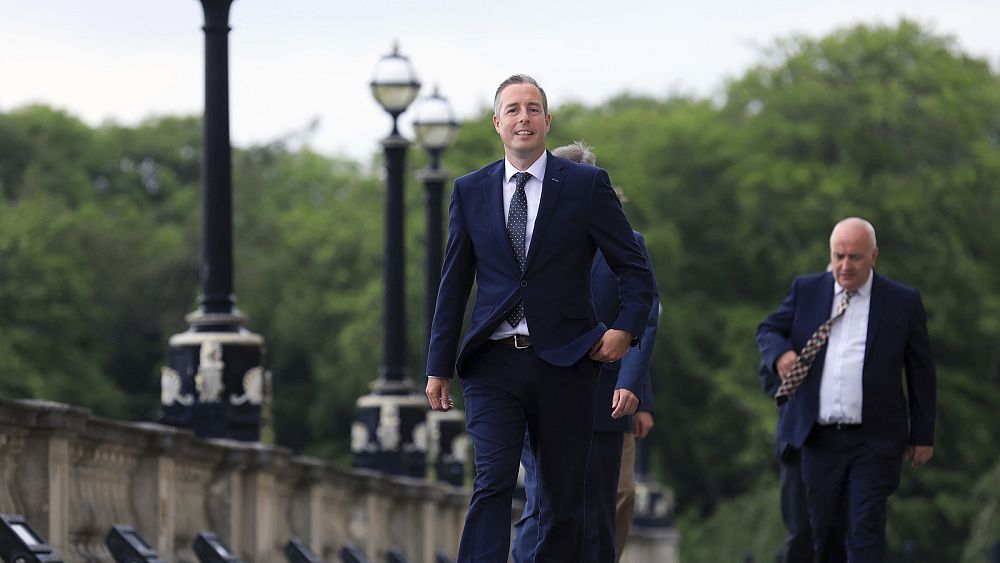
Northern Ireland’s first minister Paul Givan resigned on Thursday amid unionist discontent with post-Brexit customs arrangements, which they say threaten the province’s place in the UK.
This Thursday “marks the end of what has been the privilege of my life, serving as First Minister of Northern Ireland,” Givan said in an address in Belfast.
He held the office for a little over half a year, having been named the country’s first minister-designate in June 2021.
The DUP unionists have been threatening for months to topple the local government over their rejection of post-Brexit customs arrangements — which they denounce as a border in the Irish Sea — also known as the Northern Ireland Protocol.
The protocol is a part of the Brexit deal designed to prevent a hard border on the Irish island.
In the wake of this decision, the UK minister for Northern Ireland, Brandon Lewis, said he was “extremely disappointed” and urged the DUP to reinstate the Northern Irish first minister “immediately”.
“The UK government’s priority is to see a functioning Northern Ireland Executive for a better, more prosperous and shared future for all the people of Northern Ireland,” he added.
In a written statement addressed to Northern Ireland’s parliament speaker Alex Maskey, Givan pointed out that his government brought forward 11 new laws, stating that the new regulation helping “save lives through organ donation… speaks to the purpose of being in politics.”
“To give people hope, to improve our communities, to make a difference for the betterment of all.”
His resignation means that deputy first minister Michelle O’Neill of Sinn Fein — with whom DUP shares power — will automatically resign from office as well.
Givan was expected to announce his resignation by the end of the week. In response to the reports of his imminent resignation, Sinn Fein called for an early election at Stormont, the Northern Irish assembly.
The local elections scheduled for May will also be a high risk for the DUP, which is currently outpaced in the polls by Sinn Fein, which favours a referendum on the unification of the island.
‘Uncertainty and unpredictability’
Givan’s resignation came following a meeting on Thursday between European Commission vice-president Maroš Šefčovič and UK foreign secretary Liz Truss.
Truss hailed the talks as “good” but stressed that “we need urgent progress,” she added.
It also came after Northern Ireland’s Agriculture Minister Edwin Poots on Wednesday night ordered his department to stop health checks on food products arriving at Northern Ireland’s ports at midnight — a decision denounced by Sinn Fein republicans and Dublin as violating international law.
Šefčovič lamented the decision as “being very unhelpful” in a statement issued following his discussion with Truss.
“It creates uncertainty and unpredictability for the people and businesses in Northern Ireland,” he said, adding: According to our information, officials in Northern Ireland continue to carry out checks on goods coming to Northern Ireland. It is essential that this remains the case. The European Commission will closely monitor the developments on the grounds.”
Truss and Šefčovič are scheduled to meet for another round of discussions on February 11.
Simon Coveney, Ireland’s Minister for Foreign Affairs Simon Coveney told Euronews after Givan’s resignation was made official, that it was a time for “cool heads”.
“We need to keep our eye on the goal here, which is to achieve a compromise agreement between the EU and the UK on how we implement the Northern Ireland Protocol and the Withdrawal Agreement.”
“The British government have a responsibility to ensure that those checks take place regardless of whether there is an individual minister playing politics with these issues,” he said.
Click on the player above to watch Shona Murray’s full interview with Simon Coveney.